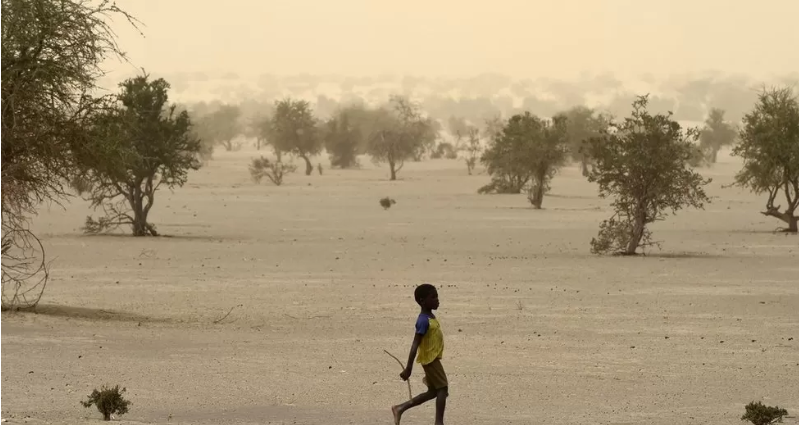Climate change threatens livelihood in Mali, as the rivers shrink, fertile land turns to desert, and insect infestations become more rampant. And, this is even more worrisome because, 80% of the population relies on traditional agriculture or fisheries, making the country extremely vulnerable to climate change.
Oxfam has warned that Mali drought is capable of being the same as that of the Horn of Africa and the Middle East, the Scientific assessments conducted with the framework of the Initial National Communication (INC) and the National Adaptation Program of Action (NAPA) revealed that climate change will contribute greatly to losses in crop production in Mali which will have a direct effect on food security of the country.
Mr. David SAGARA, Mali’s Minister of Environment and Sanitation, in an event organized to discuss climate change, said climate change is a great threat to the country’s socioeconomic and cultural development and is a major impediment to the country’s poverty reduction.
Enhancing Adaptive Capacity and Resilience to Climate Change in the Agriculture Sector in Mali information on the climatic change scenario shows Mali is enormously affected, the country is characterized by inadequate rainfall; more tremendous flooding; and violent winds.
READ ALSO: FCT Dutse Alhaji PHC Hospital Remains Uncompleted Eight Years After
Intervention to checkmate climate change in Mali, led to the establishment of the National Climate Change Committee, to put in place National Action Plan on Climate Change policy and strategic document.
Climate Resilience is integrated into the Agricultural Sector for Food Security in Rural Areas of Mali. This is to equip rural farmers on climate change, this will help put in place Climate Change Adaptation (CCA) strategies and mechanisms. This they do in two ways, intensification of the rural level capability to discover and test novel technologies and management techniques via the already growing network of Farmers, and integration of climate change into the agricultural sector arrangement both at the national and provincial levels. It is expected that about 510,000 farmers, will be aware of the dangers of climate change and will put in place adaptive management response techniques.
Looking at the current climate change impact in Mali, the country is likely to be confronted by a vicious cycle of famines, epidemics, and conflicts. The food crises and security tensions being witnessed in the north of Mali are all sufficing signs.

